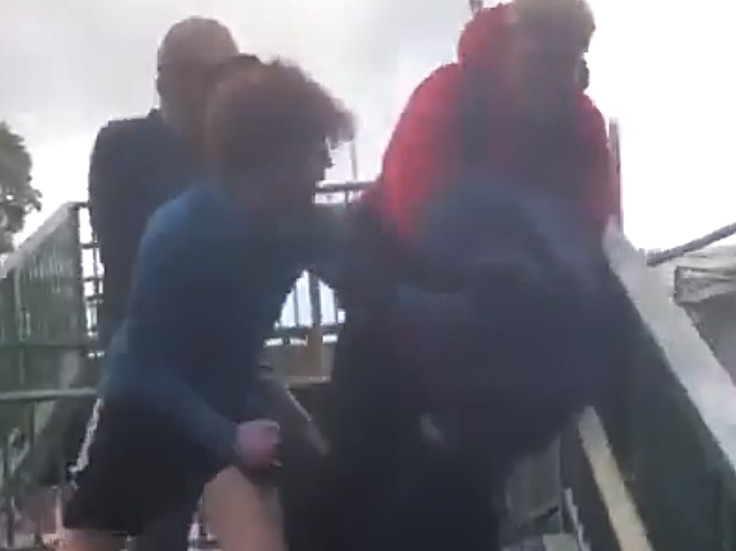Wolverhampton Skatepark Attack: Four Arrested After Assault on Black Man With Special Needs
The viral assault video has shocked Britain and reopened questions about whether political rhetoric and online hate are fueling real-world violence

A shocking video showing a young Black man with special needs being assaulted at a skatepark in Wolverhampton has reignited public anger over racial violence in Britain. The footage, filmed in August but circulating widely only this week, has prompted calls for justice and deeper scrutiny of the country's hate crime landscape.
West Midlands Police confirmed that four people — a 17-year-old girl, an 18-year-old boy, and two men aged 22 and 23 — were arrested on suspicion of wounding with intent to cause grievous bodily harm. The 20-year-old victim sustained serious head injuries and was taken to the hospital. He has since been discharged.
The attack occurred on 9 August at a skatepark off Penn Road, but arrests were announced on 16 October, after footage of the incident went viral online. In a statement, police said:
'We are aware of speculation on social media, and that a video of the assault has been shared, but there is no evidence at this stage of any racial motivation for the attack.'
Despite the official caution, many social media users and community leaders view the case as emblematic of deeper racial tensions. Posts linking the assault to far-right rhetoric from figures like Tommy Robinson and Nigel Farage have been shared thousands of times, reflecting a broader fear that hate speech is translating into hate crime.
According to the Home Office, England and Wales recorded 140,561 hate crimes in the year ending March 2024 — a slight fall overall but still among the highest figures on record. Racially motivated hate crimes accounted for nearly 70 percent of all incidents, with around 98,799 cases. Early 2025 data indicate another 6 percent increase in race-based hate crimes, reversing the previous dip.
In the West Midlands, one of Britain's most ethnically diverse regions, race remains the leading motivation in hate-related offences. Freedom of Information data shows that in 2024, 204 out of 301 'non-crime hate incidents' recorded by West Midlands Police involved racial hostility — a striking proportion even before considering the high level of under-reporting.
Disability-related hate crimes are even harder to track. A study by the University of Leicester found that as few as one in 19 disablist hate incidents are ever reported to police. That statistic casts a grim light on the Wolverhampton assault, whose victim is understood to have special needs — a detail that compounds public concern about vulnerability and neglect.
This is a horrific racist attack against a young black guy with special needs in a park in Wolverhampton, England.
— Khalissee (@Kahlissee) October 16, 2025
Is this really what Tommy Robinson and Nigel Farage supporters want for the UK? https://t.co/i4G8Ups5zL
While investigators maintain that motive has not been established, the case underscores a national anxiety: that Britain's political discourse and online vitriol are feeding a culture of dehumanisation. The blurred line between prejudice and violence has become a defining challenge for communities and law enforcement alike.
As the Crown Prosecution Service reviews the case, Wolverhampton's skatepark has become more than a crime scene — it stands as a symbol of the country's reckoning with hate, accountability, and the cost of indifference.
© Copyright IBTimes 2025. All rights reserved.





















